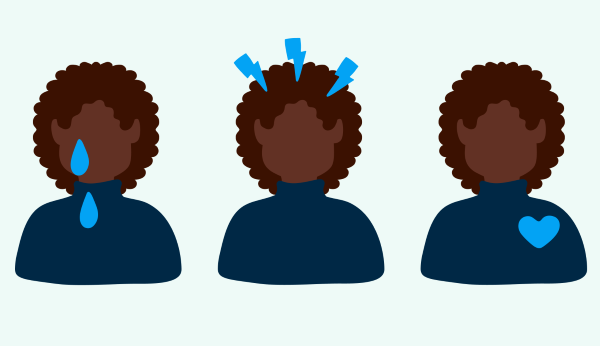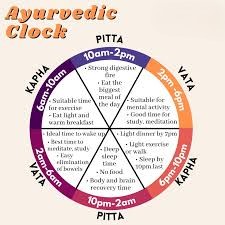Mood swings are a prevalent issue in today’s fast-paced world, often resulting from stress, hormonal changes, or lifestyle imbalances. These fluctuations in emotional state can affect daily functioning and overall well-being. The Ayurvedic treatment for mood swings offers a holistic approach, focusing on restoring harmony within the body and mind. This post explores the causes and symptoms of mood swings, and how Ayurveda can help regulate emotions through natural remedies and lifestyle practices.
Understanding Mood Swings in Ayurveda
In Ayurveda, mood swings are attributed to imbalances in the three doshas: Vata, Pitta, and Kapha. Each dosha corresponds to specific physical and emotional characteristics:
- Vata Dosha: Represents air and space. When Vata is imbalanced, it can lead to feelings of anxiety, restlessness, and emotional instability.
- Pitta Dosha: Represents fire and water. An excess of Pitta can result in irritability, anger, and frustration.
- Kapha Dosha: Represents earth and water. A Kapha imbalance can cause feelings of lethargy, depression, and emotional heaviness.
Understanding which dosha is imbalanced can guide treatment approaches, enabling individuals to restore their emotional balance.
Causes of Mood Swings
Several factors contribute to mood swings, including:
- Hormonal Changes: Fluctuations during menstrual cycles, pregnancy, or menopause can cause significant mood changes.
- Stress: High levels of stress from work, relationships, or personal challenges can disrupt emotional stability.
- Dietary Habits: An unbalanced diet lacking in essential nutrients can affect mood regulation.
- Sleep Disorders: Poor sleep quality and insomnia can lead to irritability and emotional instability.
- “According to research from the National Institute of Ayurveda, imbalances in the body’s doshas can lead to emotional instability.”
Symptoms of Mood Swings
Recognizing the symptoms of mood swings can aid in early intervention. Common symptoms include:
- Sudden changes in mood (e.g., from happy to sad)
- Increased irritability or frustration
- Anxiety or panic attacks
- Feelings of sadness or hopelessness
- Difficulty concentrating or making decisions
Ayurvedic Treatments for Mood Swings
To manage mood swings effectively, Ayurveda employs various natural remedies and lifestyle changes:
1. Dietary Recommendations
A balanced diet is crucial for maintaining emotional health. Some dietary tips include:
- Vata Balancing Foods: Warm, moist, and nourishing foods like soups, stews, and healthy fats (e.g., ghee, avocados) help soothe Vata imbalances.
- Pitta Pacifying Foods: Cool, sweet, and bitter foods such as cucumbers, melons, and leafy greens can reduce Pitta excess.
- Kapha Reducing Foods: Light, dry, and stimulating foods like legumes, spices (e.g., ginger, turmeric), and herbal teas can uplift Kapha.
2. Herbal Remedies
Certain herbs are particularly effective in stabilizing mood:
- Ashwagandha: Known for its adaptogenic properties, it helps the body manage stress and anxiety.
- Brahmi: This herb enhances cognitive function and helps reduce mental fatigue and irritability.
- Tulsi: With its calming effects, Tulsi can alleviate stress and promote emotional balance.
3. Daily Routines (Dinacharya)
Establishing a consistent daily routine can significantly impact mood stability:
- Morning Routine: Start the day with a glass of warm water and a light breakfast to stimulate digestion.
- Self-Massage (Abhyanga): Use warm sesame or coconut oil for a calming self-massage to promote relaxation and enhance circulation.
- Yoga and Pranayama: Engage in yoga postures that focus on grounding and calming the mind. Pranayama (breathing exercises) can help alleviate stress and anxiety.
4. Meditation and Mindfulness
Integrating meditation into daily life fosters awareness and emotional control. Practices such as mindfulness meditation can help individuals become more aware of their emotional triggers and reactions.
Lifestyle Changes to Support Emotional Balance
In addition to dietary and herbal treatments, certain lifestyle changes can help regulate mood:
- Regular Sleep Schedule: Aim for 7-9 hours of quality sleep per night to improve emotional resilience.
- Physical Activity: Engage in regular exercise to boost endorphins and improve mood.
- Social Connections: Nurture relationships with family and friends for emotional support and connection.
Conclusion
The Ayurvedic treatment for mood swings provides a comprehensive approach to managing emotional fluctuations by addressing the root causes and imbalances within the body. By implementing dietary changes, herbal remedies, daily routines, and lifestyle modifications, individuals can achieve greater emotional stability and overall well-being. If you’re struggling with mood swings, “Consider seeking guidance from Jeevan Jyoti Dawakhana to explore personalized Ayurvedic treatments tailored to your needs.”


